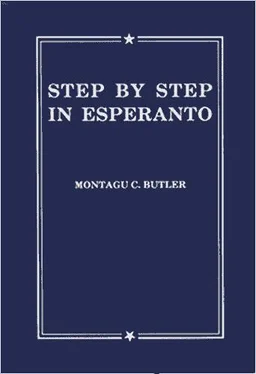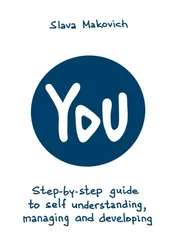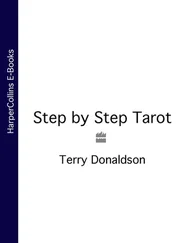(b) He doesn’t think. An elephant doesn’t forget. She isn’t asleep. You aren’t listening. The boy is not afraid. The sun isn’t shining. She doesn’t understand.
(c) Ĉu vi aŭskultas? Ĉu li kuŝas? Ĉu ŝi laboras? Ĉu ili legas aŭ skribas? Ĉu tio sufiĉas?
(d) Are you paying attention? Is the baby asleep? Is May talking? Is the baby crying? Do you understand? Is it urgent? Is the moon shining?
(e) Ĉu vi legas aŭ skribas? staras aŭ sidas? Ĉu Tom laboras aŭ ludas?
88. Neprecedes the idea it negatives. Compare: La patro legas, sed la patrino ne legas. La patro legas, sed ne la patrino.Make similar sentences.
89. Neis used also in orders. Ne parolu! Don’t talk! Ne forgesu! Ne staru, sed sidu! Legu, sed ne traduku! Silentu, sed ne dormu. Ne timu! Ne flatu!
90. DO= then, so (a weak form of therefore ). Do vi estas Kimro? So you’re a Welshman? Kie li estas, do? Where is he, then? Kio do estas tio? Then what is that?
NU= Well! Now! Well now! Nu, do, kiu vi estas? Well, then, who are you? Nu, parolu! Now! speak!
N.B. Doand nuare argumentative, exclamatory: they have no relation to then and now of time.
(a) Mi estas Anglo. Nu, vi ne estas mi. Do vi ne estas Anglo!
91. From here onwards free use should be made of question and answer ( demandokaj respondo). [16]
«Ĉu?»« Ĉu ne?» (Special Use)
92. English has a way of saying that a thing is so, and then asking whether it is not; or of saying that it is not, and then asking whether it is? Thus: You sing, don’t you? You don’t sing, do you? Esperanto says, similarly: Vi kantas, ĉu ne? Vi ne kantas, ĉu?( Ĉu ne?is the French n’est-ce pas? ).
When asked “You’ll have some more, won’t you?” an old Quaker replied “Friend, first thou speaks an untruth, then thou asks a question!”
(a) He forgets, doesn’t he? I’m not an idiot, am I? That’s Miss Brown, isn’t it? You understand, don’t you? They’re not listening, are they? You aren’t afraid, are you?
93. APUD, close-to, near, by, beside .
SUB, under, underneath, beneath, below .
SUPER, over, above . Cp. sur, on (touching).
94. N.B. There may be many English words to express one meaning. And one English word (e.g. box ) may have many meanings. TRANSLATE MEANINGS, NOT WORDS.
karbo, coal; kastelo, castle; plumo, pen, feather; ponto, bridge; sofo, sofa; tero, earth .
95. (a) La portreto estas APUDla piano. Lampo …kandelo. Kastelo …maro. Domoj …rivero. Plumo … inkbotelo.
(b) La hundo estas SUBla sofo. Benko …tablo. Elizabeto … ombrelo. Tunelo…rivero. Muso …lito. Muroj …tegmento. Karbo …tero.
(c) La vespo estas SUPERla tablo. Portreto …piano. Birdoj …ponto. Aero …tero. Nuboj …maro.
(d) Kie estas lakonduktoro? planko? tunelo? plafono? herbo? birdoj? aero? ponto? boato? fenestro? Edinburgo?
(e) Kio estas apudla lernejo? tablo? libro? litero A en la alfabeto? … superla tero? domo? rivero? … subla tero? ĉielo? ponto? plafono?
(f) Respondu! Ĉula tunelo estas super la tero? la maro estas en la insulo? Irlando estas apud Afriko? la rivero estas super la pontoj? la planko staras sub la plafono? F‑ino B sidas apud vi? la seĝo estas super la planko? la kuseno estas sur la seĝo, aŭ sub ĝi? la tegmento estas sub aŭ sur la domo? tio estas plumo aŭ kreto?
(g) Draw seven pictures to illustrate La birdo estas apud (en, sen, sub, super, sur) la nesto, inter du nestoj. ( An oval may represent the nest, and a dot the bird. )
96. Apud, de, en, inter, por, sub, super, sur,are “prepositions” i.e., words showing the relation between objects.
Remember: after a preposition English changes I, he, she, we, they, who, into me, him, her, us, them, whom (29). We say She is near him (not near he). He is near her (not near she) . But Esperanto makes no change. Ŝi estas apud li. Li estas apud ŝi.
97. The sky is over us. He works under you, doesn’t he? The sunlight is on her. Miss S. is above him in the examination, isn’t she? (There) isn’t a looking-glass (over) there, is there? He doesn’t sit among the girls, does he? Does Mary work near you? Do you sleep over the bed or under it?
98. atendas, [17] waits; dronas, drowns; flugas, flies; instruas, teaches; kreskas, grows; lernas, learns; loĝas, lives (dwells); ludas, plays; manĝas, eats; memoras, remembers; mortas, dies; ploras, cries, weeps; ridas, laughs; trinkas, drinks; vivas, lives (is alive) .
The baby grows and grows. The mother stands and waits. The flower lives and dies. We eat and drink. She laughs and cries. He doesn’t remember. I don’t promise. We’re not waiting for you. The teacher teaches, but the pupils do not learn. Well, I read and remember, but you read and forget! He doesn’t ask ( demandas 91), so I don’t answer. The boy is-drowning in the river. Where do you live? Is the animal alive? Is it dying? You remember, don’t you? You’re not asleep, are you? The girl is growing, isn’t she? Don’t wait for me! Learn and remember! Don’t cry! Eat and drink!
99. Proverboj. La sperto instruas. Filo konfesas,patro forgesas. Li sidas sur pingloj( pins ). Li dronas en detaloj.Unu birdo en la mano valoras( is worth ) du sur arbo. [18]Buŝo promesas,mano forgesas.
100. (a) Modelo: La floro kreskas en la ĝardeno. La patrino laboras en … La infanoj ludas sur … Mi loĝas apud … La birdoj flugas super …
(b) Complete: Apud la seĝo staras … Super la kampo flugas … En la klaso instruas … Apud la teatro atendas … Sur la strato ludas … En Londono loĝas … Super la nuboj brilas …
(c) Traduku! He writes for money. I am waiting for you. They live for pleasure. A bed for the night.
101. Respondu! KIOparolas? (Mono parolas!). flugas? kreskas? staras sur la tablo? brilas en la nokto (tago)?
KIUinstruas? lernas? sidas inter X kaj Y? kantas en la nokto? ploras en la tago kaj ankaŭ en la nokto?
KIE labirdoj flugas? kato kantas? hundo dormas? figoj kreskas? patro laboras? Kie S‑ino T loĝas?
Читать дальше












